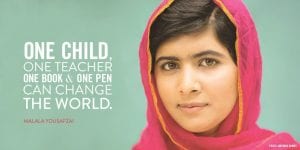In their book 180 Days, Kelly Gallagher and Penny Kittle explain an assignment they give to their grade nine students on the first day of class: a letter to themselves. “We ask students to share their hopes, their dreams, their goals, and their fears. We encourage them to ponder the questions they have as they enter high school, and we ask them to make predictions as well” (p. 25). The letter is returned to the students at the end of their senior year.
Regardless of the grade you teach, the idea for this assignment is powerful. Day one: a letter to self. Students become actively engaged in authentic and meaningful writing immediately. The expectation is set: writing will be a part of your daily classroom work.
Good practice reminds us to spend time in discussion with our students to ensure they have generated some ideas before it comes time to write. For those students who need further support, consider prompting them to begin three paragraphs with starters such as: I hope…, I’m nervous about…, I predict….
And while the students are writing a letter to themselves, write one to your self as well…

